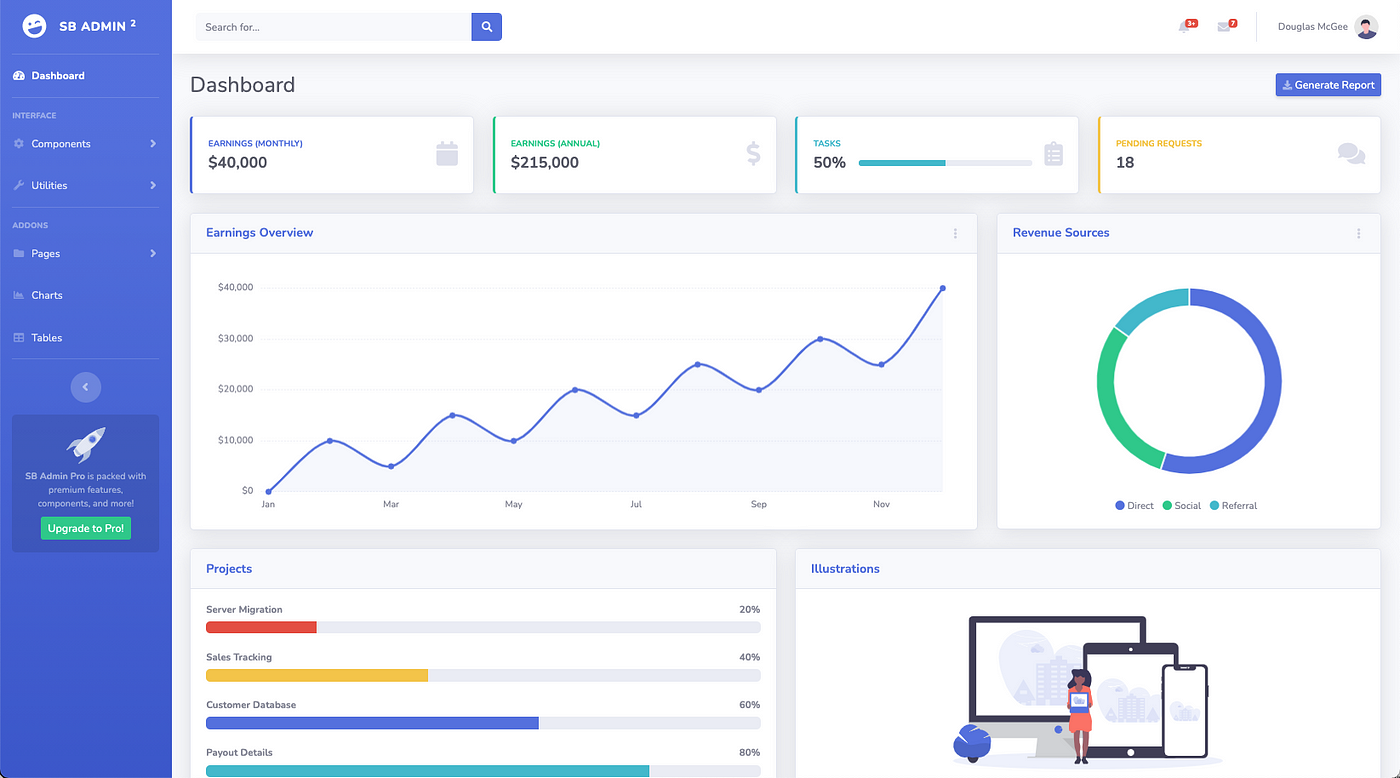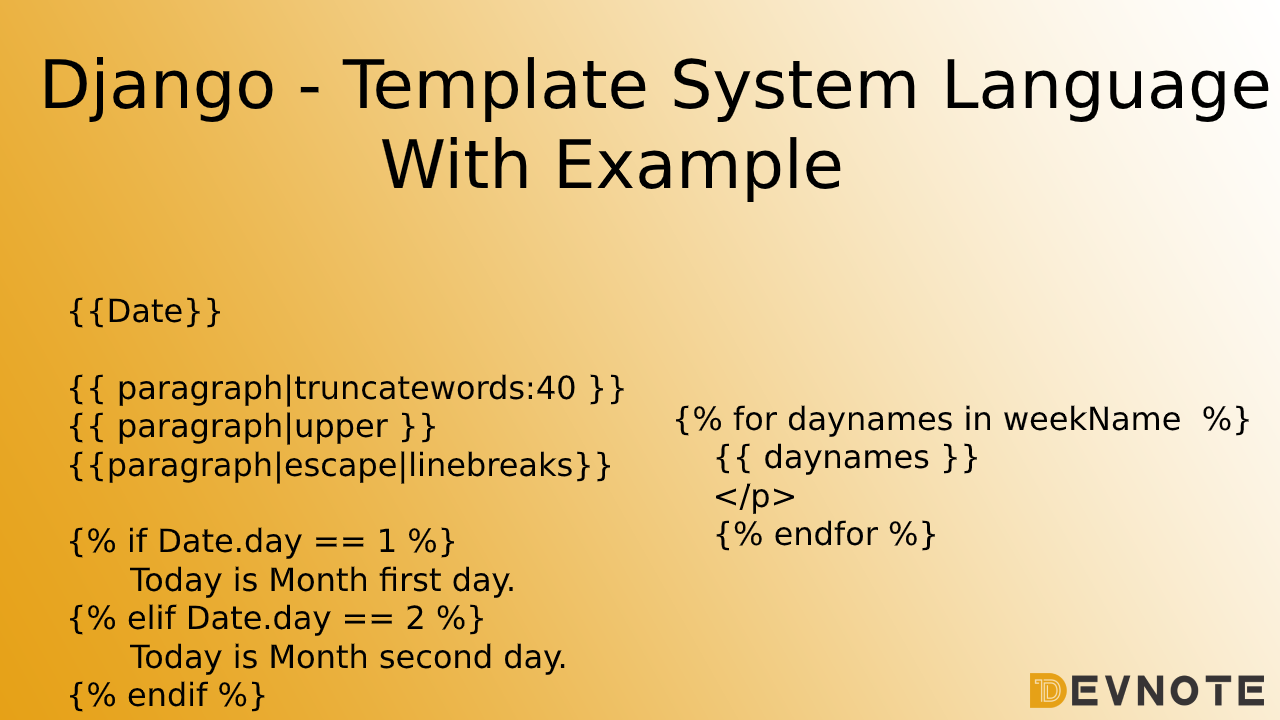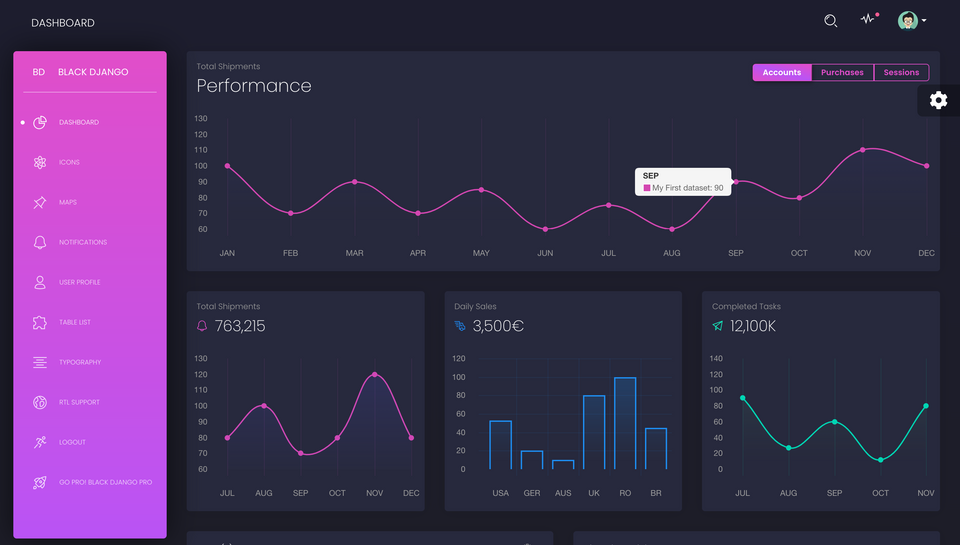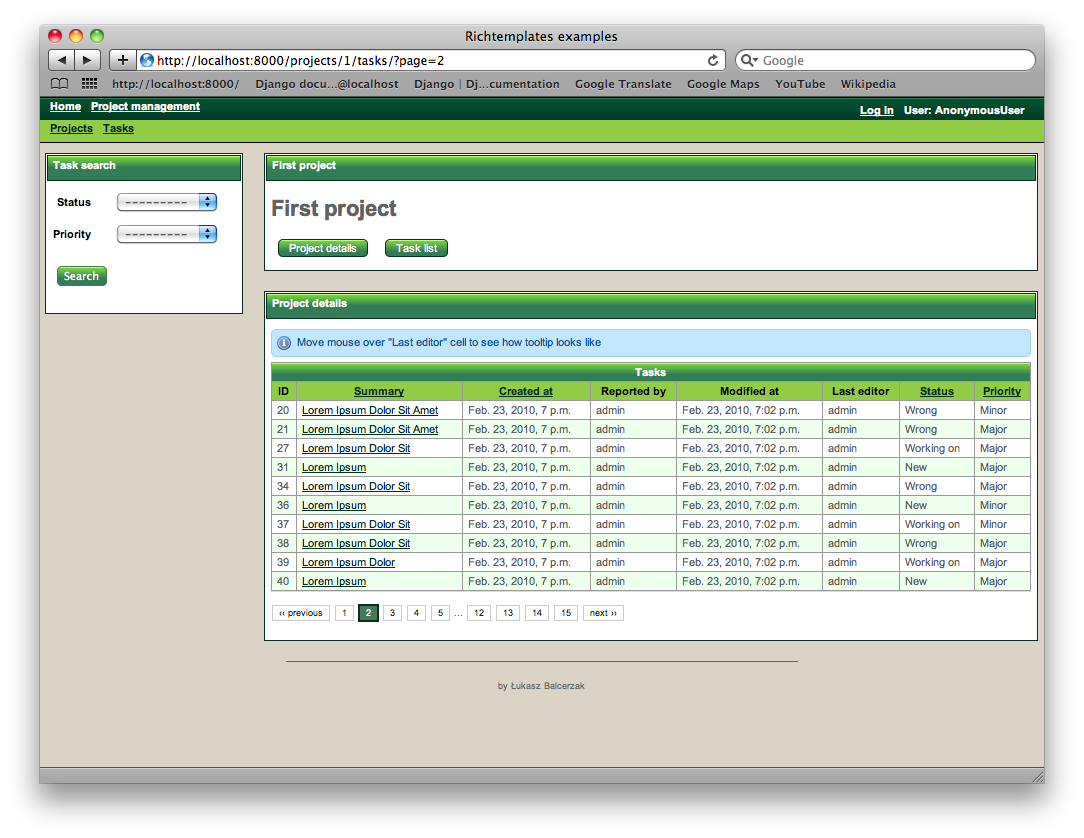Django Template If
Django Template If - Web the if tag allows you to write conditional statements. A conditional expression evaluates a series of conditions. Within the file, use the if statement inside the html markup, like this: Else logic within filters, annotations, aggregations, and updates. Example get your own django server {% if greeting == 1 %} hello {% endif. {% if %} { {}} {% else %} { {}} {% endif %} django template if.elif.else syntax: Web i have also added tag and that's it. The variable inside the if. If your intention is to use a template if it exists and default to a second template, you would better use select_template:. Open a.html file and select a section you wish to add an if statement step 2. A conditional expression evaluates a series of conditions. After modification your code will look something like below. Web django templates use the {% if %} and {% endif %} tags to create if statements. Web conditional expressions let you use if. If your intention is to use a template if it exists and default to a second template, you would. Use if statements to output a block of code if a condition is true. Web django template if.else syntax: Web the if tag allows you to write conditional statements. It is recommended that you use the automatic documentation, if available, as. A conditional expression evaluates a series of conditions. Web i have also added tag and that's it. You can use else or elif (short for else if) to specify what to. Web conditional expressions let you use if. Web django templates use the {% if %} and {% endif %} tags to create if statements. 首页 登录 使用 cookie 保存登录状态。未登录的用户只能访. If your intention is to use a template if it exists and default to a second template, you would better use select_template:. {% if %} { {}} {% else %} { {}} {% endif %} django template if.elif.else syntax: It is recommended that you use the automatic documentation, if available, as. Web conditional expressions let you use if. Web django. {% for source in sources %} { { source }} {% if.</p> After modification your code will look something like below. {% if %} { {}} {% else %} { {}} {% endif %} django template if.elif.else syntax: 首页 登录 使用 cookie 保存登录状态。未登录的用户只能访. Within the file, use the if statement inside the html markup, like this: The variable inside the if. A conditional expression evaluates a series of conditions. Web django templates use the {% if %} and {% endif %} tags to create if statements. {% if %} { {}} {% else %} { {}} {% endif %} django template if.elif.else syntax: You can use else or elif (short for else if) to specify what. 首页 登录 使用 cookie 保存登录状态。未登录的用户只能访. After modification your code will look something like below. The variable inside the if. Web an if statement evaluates a variable and executes a block of code if the value is true. Example get your own django server {% if greeting == 1 %} hello {% endif. Example get your own django server {% if greeting == 1 %} hello {% endif. It is recommended that you use the automatic documentation, if available, as. Web i have also added tag and that's it. A conditional expression evaluates a series of conditions. Web django templates use the {% if %} and {% endif %} tags to create if. Web django template if.else syntax: If your intention is to use a template if it exists and default to a second template, you would better use select_template:. Web conditional expressions let you use if. {% for source in sources %} { { source }} {% if.</p> 首页 登录 使用 cookie 保存登录状态。未登录的用户只能访. After modification your code will look something like below. It is recommended that you use the automatic documentation, if available, as. 首页 登录 使用 cookie 保存登录状态。未登录的用户只能访. Else logic within filters, annotations, aggregations, and updates. Web conditional expressions let you use if. Web conditional expressions let you use if. Web an if statement evaluates a variable and executes a block of code if the value is true. Web i have also added tag and that's it. The syntax for a basic if statement is as follows: Web django templates use the {% if %} and {% endif %} tags to create if statements. Else logic within filters, annotations, aggregations, and updates. The variable inside the if. After modification your code will look something like below. A conditional expression evaluates a series of conditions. {% for source in sources %} { { source }} {% if.</p> If your intention is to use a template if it exists and default to a second template, you would better use select_template:. Example get your own django server {% if greeting == 1 %} hello {% endif. {% if %} {.</p> Web django template if.else syntax: Web the if tag allows you to write conditional statements. Use if statements to output a block of code if a condition is true. You can use else or elif (short for else if) to specify what to. 首页 登录 使用 cookie 保存登录状态。未登录的用户只能访. It is recommended that you use the automatic documentation, if available, as. {% if %} { {}} {% else %} { {}} {% endif %} django template if.elif.else syntax: The syntax for a basic if statement is as follows: Web i have also added tag and that's it. Else logic within filters, annotations, aggregations, and updates. Web django template if.else syntax: If your intention is to use a template if it exists and default to a second template, you would better use select_template:. Use if statements to output a block of code if a condition is true. The variable inside the if. Example get your own django server {% if greeting == 1 %} hello {% endif. {% if %} {.</p> 首页 登录 使用 cookie 保存登录状态。未登录的用户只能访. Web conditional expressions let you use if. After modification your code will look something like below. Web django templates use the {% if %} and {% endif %} tags to create if statements. Open a.html file and select a section you wish to add an if statement step 2. You can use else or elif (short for else if) to specify what to. Web the if tag allows you to write conditional statements.[Django教學5]Django Template(樣板)開發快速上手
GitHub geexarts/djangojet Modern responsive template for the
Django Templates A Curated List Creative Tim's Blog
Django Templates A Curated List Creative Tim's Blog
Django Template For Loop / Django Templates Learn To Create Your First
Save Time With this Django Template Bootstrap Admin by Timur
Django Template System Language With Example Devnote
Django Template Black Dashboard
Django Template If
Django Templates A Curated List Creative Tim's Blog
A Conditional Expression Evaluates A Series Of Conditions.
It Is Recommended That You Use The Automatic Documentation, If Available, As.
{% For Source In Sources %} { { Source }} {% If.</P>
Web An If Statement Evaluates A Variable And Executes A Block Of Code If The Value Is True.
Related Post:

![[Django教學5]Django Template(樣板)開發快速上手](https://1.bp.blogspot.com/-7_udsqngJcU/XnIbhJ2L9WI/AAAAAAAABkQ/1RBZUz8OCbQQT9_sAFCw5-5AUEo_kjxSwCLcBGAsYHQ/s640/django_template.jpg)








